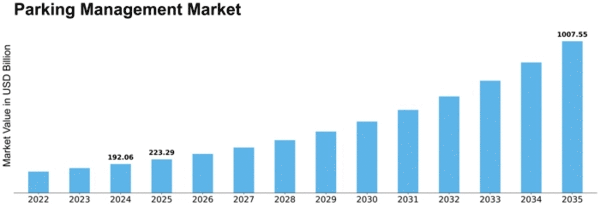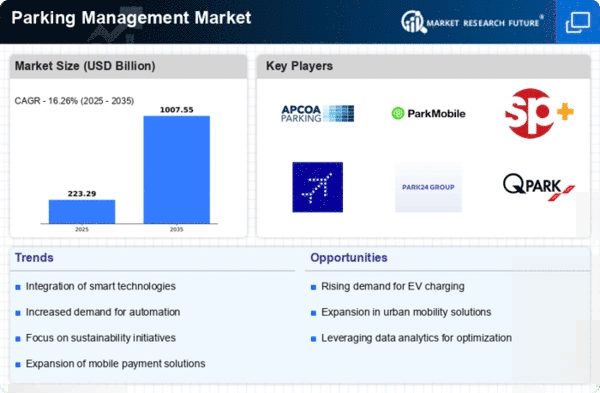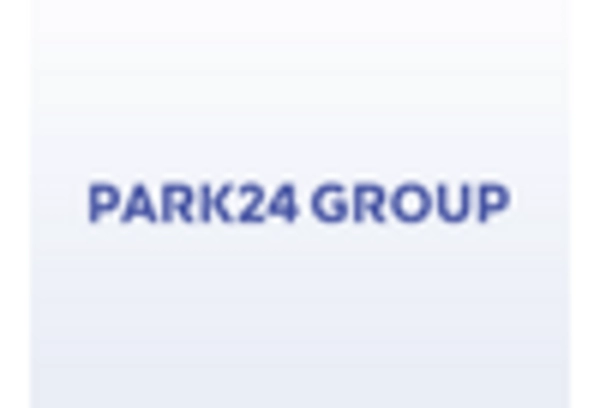Parking Management Size
Parking Management Market Growth Projections and Opportunities
A variety of factors affect the design, operation, and use of parking facilities in the dynamic environment within which the Parking Management sector exists. Urbanization growth, technological change, and increased need for effective parking solutions are some of the market dynamics dictating Parking Management. Technological innovation is one of several main catalysts for change in the Parking Management market. Smart sensors, license plate recognition systems, and mobile applications are advanced technologies that have completely overhauled traditional parking systems. Additionally, the global focus on sustainability and environmental preservation has had an impact on this industry's dynamics. Many cities have embraced eco-friendly practices, while new forms of Parking Management have emerged to support such initiatives. Sustainable urban areas can be improved through smart parking solutions that encourage the adoption of electric vehicles (EVs) and optimize the usage of parking spaces while minimizing traffic congestion in a city. Incorporated into environmentally conscious car park models include features supporting green transportation. The driving force behind Parking Management market recognition is changing customer behavior. In relation to car parks, users want convenience, transparency, and ease of entrance as well as exit points. These applications enable citizens to find pay or book in advance for slots before any visitation on modern Parking Management systems relied upon heavily today. At the same time, Government regulations and urban planning policies also influence the dynamics of the Parking Management market. Traffic congestion management has become a priority among many cities; hence, they have introduced different traffic flow rules together with limiting construction approvals, particularly at business centers where congestion is more likely to occur mostly during peak hours but not limited to them, including emission reduction measures. The ones that gain significance in this market are those parking management system providers who meet these regulatory requirements aligned towards broader urban development objectives. It becomes important for mobility solution vendors to adhere to government regulations regarding things like pricing structures or access requirements when it comes to park-related issues. Another factor influencing how the Parking Management Industry works is its competitive landscape. Providers of solutions differentiate themselves in various ways, including via innovations, strategic alliances, and a range of services. Such integrated Parking Management systems form a coalescence that combines with other smart city initiatives such as traffic management and public transportation systems. Additionally, economic factors impact the Parking Management market dynamics. They have been driven by economic growth, urban development projects as well as investments in smart city infrastructure that has led to high demand for advanced parking solutions. Developing countries are improving their car parks' infrastructure to meet the ever-increasing vehicle ownership rates due to continued global urbanization, shifting mobility patterns amongst people living there, and consequently changing mobility patterns. Economic considerations like cost-effectiveness or return on investment guide decisions made by both public and private sector entities involved in Parking Management.



















Leave a Comment